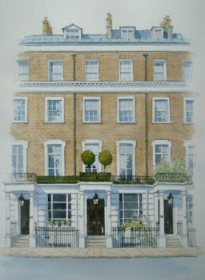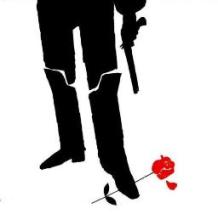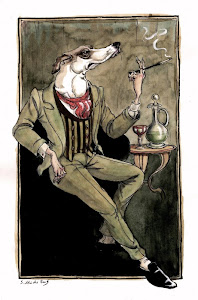 Dominica, West Indies
Dominica, West Indies We were tired and we were sore and more than a little nervous as we rode up to the timbered bungalow. On the lawn there were peacocks, white and blue, spreading their vast tails. From a flagstaff the Union Jack was flying. On the veranda, in a deck chair, our host was waiting. His appearance had been described to us many times. And as he rose to welcome us he looked very much as I had expected him to look. He was tall, broad-shouldered, and immensely fat. He wore a shirt that was slightly soiled, and open at the neck. The belt that held his trousers had slipped, so that his shirt protruded, revealing an inch or two of skin. He wore slippers; his ankles, as he shuffled towards us, gave the impression of being swollen. He looked as I had expected him to look. A typical colonial planter. But what I had not expected was the voice with which he welcomed us. It was the courtly voice of the old-world English gentleman, with generations of breeding at the back of it.
It was a large rambling house; a bachelor's house. Its walls were lined with bookshelves and the odd assortment of pictures that bachelors at various periods of taste annex. There were hunting prints and college groups, and nudities from La Vie Parisienne, war-time caricatures of "Big and Little Willie." Over the washstand of each room was a printed text: "Work is the ruin of the drinking classes"; "If water rots the soles of your boots, think what it must do to your inside." A library is an autobiography. I looked carefully along his shelves. There were a certain number of novels, bought casually, a complete set of Wisden's Cricketer's Almanac since 1884, some legal books, the publications of the Rationalist Press, Darwin and the mid-Victorian agnostics, a few classics, a Horace and a Catullus, Thackeray and Dickens.
The conversation was of the kind for which you would look in such an atmosphere. The judge did most of the talking. He was an admirable raconteur. His anecdotes were scattered with reflections. He was a staunch Tory, with little use for the philosophy and the sociology of the day. What did they want to start educating the working classes for? Education meant discontent. The working classes thought so much of themselves nowadays that they couldn't make good servants.
"And what else are they any good for?" he asked. "They're no happier now. They're less happy."
Written in 1929
Hot Countries, Alec Waugh (1930)





















3 comments:
Honestly: great writing!
Excellent stuff! I've got a copy on order now. Unfortunately much of Alec Waugh's work is out of print.
I'd love to add "Resentment Poems" and "Sir! She Said" to my 'autobiography'.
I've always had a fascination with Alec, and this sounds absolutely brilliant. I must get a copy of this.
Post a Comment